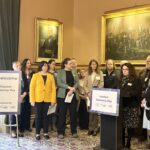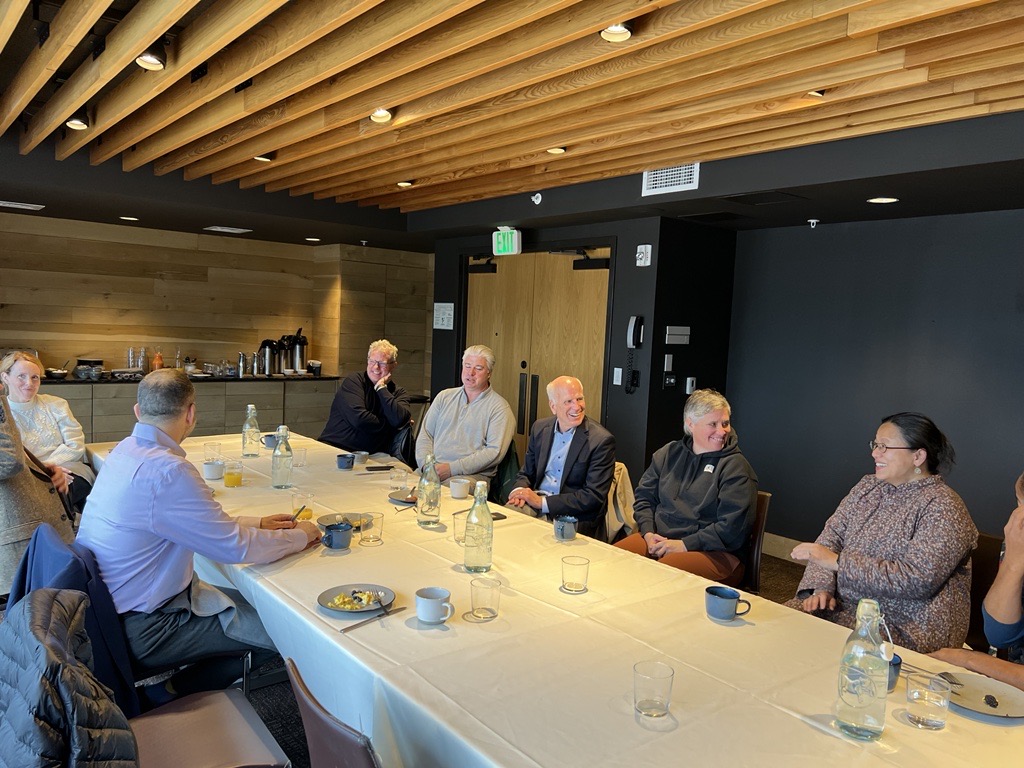Vermont Chamber Releases 2025 Session Legislative Outcomes Report, Focuses on Affordability, Reform, and Resilience
Montpelier, VT (July 15, 2025) – The Vermont Chamber of Commerce has released its 2025 Session Legislative Outcomes Report, a comprehensive review of key policy developments that impacted the state’s business environment during the recent legislative session.
“As we reflect on the 2025 legislative session, we are reminded of both the responsibility and the opportunity that come with representing Vermont’s diverse and resilient business community,” said Amy Spear, President of the Vermont Chamber of Commerce.
In a year defined by escalating fiscal pressures, a deepening affordability crisis, and a $9 billion state budget, the Vermont Chamber remained focused on championing a pragmatic, data-informed policy agenda. The rising cost of living, a severe housing shortage, and unsustainable healthcare and education expenses require more than short-term fixes. These challenges demand durable, systemic solutions that prioritize growth and elevate the voices of Vermonters, whether heard around family tables, in boardrooms, or on the factory floor.
This session unfolded in the shadow of expiring federal relief funds and prolonged legislative deliberations. Yet, through it all, the Vermont Chamber maintained a steady course: advocating for smart housing development, protecting businesses from disproportionate tax burdens, and initiating the long-term work of bending the cost curve in education and healthcare.
The report details how the Vermont Chamber helped collaboratively shape outcomes in areas including taxation, labor law, housing, healthcare, technology, and economic development, while remaining steadfast in protecting businesses from harmful mandates and excessive fiscal burdens.
Gains were possible during the session because Vermont Chamber members were engaged, vocal, and resolute. Despite a continued pattern of high spending, with new mandates and regulatory burdens, the Legislature delivered new opportunities in housing and infrastructure development, and reforms in education and healthcare. The Vermont business community will be shaped for years to come by what happened, and what didn’t happen, this session.
Highlights from the 2025 Session Legislative Outcomes Report:
- Legislative Engagement: Vermont Chamber staff testified 39 times before committees and monitored 865 committee hearings. Eight legislative interns also joined the Vermont Chamber team this session, strengthening advocacy capacity.
- Affordability Through Critical Reform: The Vermont Chamber helped steer policies addressing healthcare cost containment, education funding, stormwater compliance flexibility, and tax fairness, ensuring that reforms advanced without placing disproportionate burdens on employers.
- Incremental Progress on Long-Term Goals: Laws impacting chemical regulation, health system oversight, and environmental permitting demonstrated where constructive compromise was possible. The Vermont Chamber remained at the table to promote pragmatic, step-by-step progress.
- Innovative Solutions for People and Places: The Vermont Chamber championed investments in housing infrastructure, workforce development, and sustained support for tourism, trade, and entrepreneurship. These priorities are grounded in the long-term vision of the Vermont Futures Project Economic Action Plan. They underscore Vermont’s imperative to attract and retain talent while fostering vibrant communities and improving affordability. The plan presents a dual framework focused on people and places, with actionable strategies to recruit and retain working-age residents, increase labor force participation, expand housing and infrastructure, and align policy with evolving community needs. Advancing these strategies is essential to strengthening affordability, enhancing community vitality, and securing a more prosperous future.
- Removal of Harmful Proposals: Unified advocacy helped remove a proposed business-only property tax classification from major education legislation and paused efforts to implement sweeping employer mandates that would have increased costs.
“As we look to 2026, we’ll continue leading with transparency, determination, and collaboration,” added Spear. “From affordability to abundance and innovation, Vermont’s economic resilience depends on policies that reflect the realities of doing business in our state. Our mission remains clear: to ensure all Vermonters have the opportunity to thrive.”
The report also outlines pending legislation expected to be revisited next year, including non-compete agreements, data privacy, and climate regulation, and reinforces the Vermont Chamber’s ongoing commitment to advocating practical, systemic solutions at the State House.











